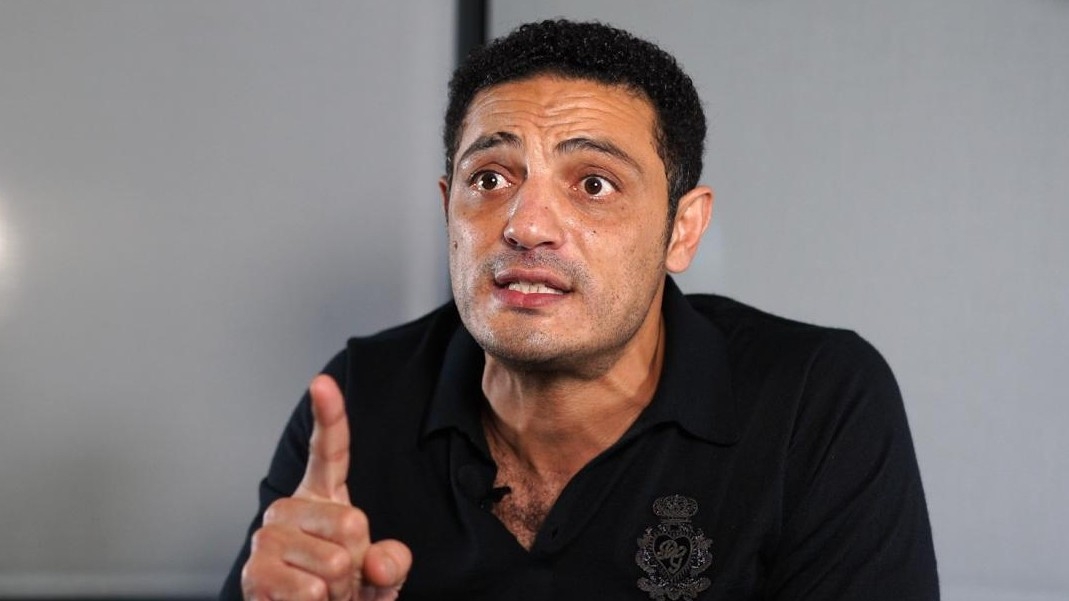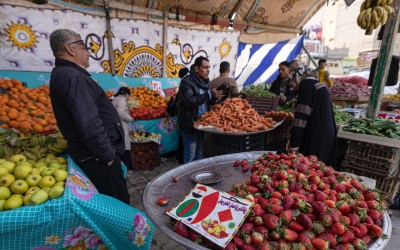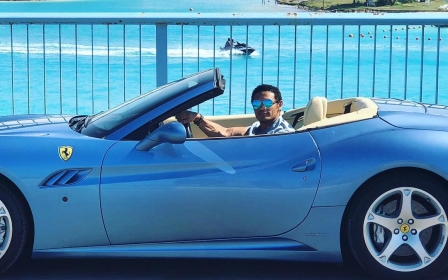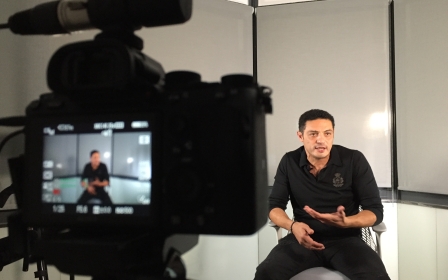Egypt sentences 22 minors and whistleblower to lengthy prison terms over 2019 protests

An Egyptian court on Sunday sentenced 22 children to lengthy prison sentences ranging between five and 15 years over rare anti-government protests that took place across the country four years ago.
The verdict also included a life sentence in absentia (25 years) for the exiled businessman and actor Mohamed Ali for leading the calls to protest against the government of President Abdel Fattah el-Sisi in 2019.
The first terrorism circuit of the Cairo Criminal Court sentenced 39 people in the same case, known in local media as "The Joker", after a mass trial of 103 people.
The charges brought against the defendants included posting videos on YouTube calling for the protests, and sharing these videos on Facebook and WhatsApp. Other charges included disrupting traffic and using violence against civil servants, such as police officers, to prevent them from carrying out their work.
New MEE newsletter: Jerusalem Dispatch
Sign up to get the latest insights and analysis on Israel-Palestine, alongside Turkey Unpacked and other MEE newsletters
"The sentence comes as a shock, sending many kids to ten years in prison," said Aya Hijazi, director of the Washington DC-based Belady Centre for Rights and Freedoms.
"There was no real crime. Neither blood nor terrorism. Only a legitimate and legal call to protest," she told Middle East Eye.
قضت محكمة جنايات القاهرة، الدائرة الأولى إرهاب، برئاسة القاضي محمد سعيد الشربيني، بجلسة اليوم الموافق 15 يناير 2023، على 28 طفلاً رفقة السيدة الوحيدة المدرجة على ذمّة القضيّة بأحكام تتراوح من البراءة وحتى السجن 15 عام. pic.twitter.com/9CSBYW2mTn
— Belady-بلادي جزيرة الإنسانية (@Belady_IH) January 15, 2023
The sentence cannot be appealed, because it has been issued by a terrorism circuit, said Ahmed Attar, a researcher at the Egyptian Network for Human Rights.
He told Middle East Eye that the detention of people who were accused of participating in 2019 protests was "arbitrary and was done without warrant".
"Many of the defendants were subjected to enforced disappearance and torture before being charged," Attar said. "These cases are politically motivated, with no evidence to support the charges."
Call for protests from Spain
Mohamed Ali was a fledgling actor and owned a property company that contracted with the Egyptian military on construction projects. He turned into a whistleblower in 2019, accusing Egyptian army officials of corruption.
He used his Youtube channel to call for protests against the government of President Sisi, which prompted rare demonstrations in 2019, followed by a broad arrest campaign of 4,000 people, including academics, activists and lawyers.
Ali's social media videos, filmed chiefly in an apartment in Spain, went viral and were seen by millions of people in Egypt and outside it, and got the attention of Sisi, who Ali described as "a failed man", "a disgrace" and a "midget".
Attar told MEE that Sunday's ruling was based on the anti-terrorism law, a draconian bill which grants the public prosecution powers deemed unconstitutional by rights groups.
The longstanding state of emergency, and the Emergency Supreme State Security Court, established in 1980, does not allow defendants to appeal their rulings, and it prosecutes people suspected of "being a threat to national security and public order".
However, in October 2021, Egypt lifted the state of emergency imposed in the country in June 1967, and it also cancelled the power of emergency state security courts, except over cases already in the trial process.
Sunday's rulings would remain inactive without the ratification of the military governor, who is Egypt's president or his authorised representative.
Egyptian jails held an estimated 65,000 political prisoners in 2021, arrested for their opposition to the Sisi government.
Middle East Eye delivers independent and unrivalled coverage and analysis of the Middle East, North Africa and beyond. To learn more about republishing this content and the associated fees, please fill out this form. More about MEE can be found here.





